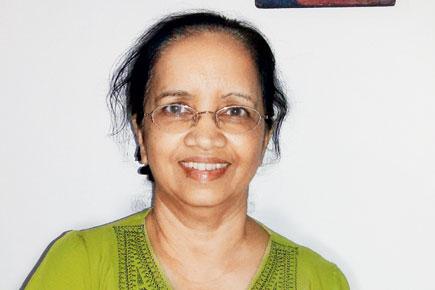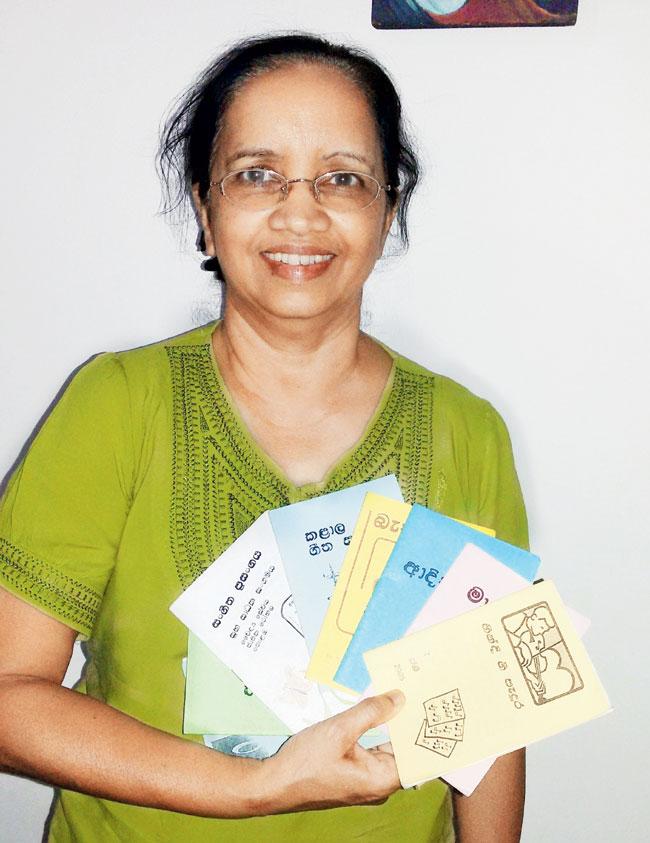Let’s start with a heartwarming experience to flag off the new year on an auspicious note

Let’s start with a heartwarming experience to flag off the new year on an auspicious note. Last year, my film-related work took me to Berlin, Sydney, Melbourne, Brisbane, Dubai, Colombo, Kathmandu, Ladakh, Delhi and Bengaluru. But one of the most joyous experiences was catching up with Saroja in Colombo, which had nothing to do with the film — but delightfully turned out to be so. Dr Saroja Siriwardene is a distinguished pathologist, formerly with the National Hospital of Sri Lanka.

Dr Saroja Siriwardene with her paduru party song booklets
ADVERTISEMENT
I’d been invited by the Colombo International Film Festival to give a master class on script writing and film festivals. I was delighted to be able to also catch up with Saroja in 2014, whom I’d met only twice before. The first time, she reminded me, was in 1980, on a train from Matara to Colombo, when I was holidaying — I was in college then.
Twenty-one years later, in 2001, Saroja came to Mumbai on work. No one answered my residence phone (we’d since moved) and I wasn’t listed in the phone book. One day, by chance, she was reading the Times of India, and saw an article I wrote called ‘Tree Musketeers’. She phoned me at the Times of India, reminded me we’d met 21 years ago on a train to Colombo, and came over. I was embarrassed I could offer only canteen chai to someone who had remembered me all these years, but we chatted like old friends. Just before she left, she showed me a small scrap of paper on which I had written my Bombay address — I was very moved that she had saved it up for decades. She wrote a charming poem, Mission Impossible, about our meeting, and put it up on her hospital staff notice board.
Last year, we met again after another 13 years, this time at her gorgeous hacienda-style bungalow in Colombo.
Nobody will believe her age — her skin glows, and her eyes radiate a warm tejas. She’s a single mother to two grown-up children; her husband left her for someone else. She was determined to work past the negative energy and, seeking deeper answers, got herself degrees in Buddhist studies and Pali. She learnt the keyboard, but because of power cuts, took up the violin instead, and lessons in dancing the salsa. And one day, she plucked fresh spinach from their garden, and took it to meet her ex and his partner. And they picked it up from there — and are all quite cordial today.
There’s more to the deeply inspiring Saroja. She enjoys throwing padaru (mat) parties, popular in Sri Lanka — their version of antakshari — informal parties where people sit on mats and sing all evening. Saroja, who is Sinhalese, knows dozens of Indian songs — old Hindi songs, recent Bollywood love songs and bhajans — without knowing a word of Hindi or the meaning of the songs. For her paduru parties, she chooses songs appropriate to the occasion, transcribes all the Hindi lyrics into the Sinhala script, and prints song booklets in advance for sing-alongs — birthdays, new year’s, a retirement, a teacher’s anniversary. Her booklets are a little like those jewels — mini song books you can still sometimes buy in Mumbai, Mohammed Rafi ke dard bhare nagme — but more personalised. Her repertoire includes O Mere Sona Re, Teri Bindiya Re, Piyu Bole, Sawan Ka Mahina, Julie, Om Jai Jagdish Hare and more. She has dozens of song booklets, and if you ask her, when they sang Chin-na chin-na aasai, she will immediately say, “Ah, that was New Year’s 2006.” Once she went to lecture in Jaffna, and promptly asked a Tamil medical officer the meaning of Chin-na chin-na aasai (Chhoti si asha), from Mani Ratnam’s Roja. What could be a sweeter love song to Bollywood and India? If only Indians could sing, with the same affection, songs from our neighbours in Sinhala, Bangla, Urdu, Nepali, Chinese and Burmese — and maybe one day even have paduru parties with them. Here’s to you, Saroja!
Meenakshi Shedde is South Asia Consultant to the Berlin Film Festival, an award-winning critic, curator to festivals worldwide, and journalist. She can be reached at meenakshishedde@gmail.com.
The views expressed in this column are the individual’s and don’t represent those of the paper.
 Subscribe today by clicking the link and stay updated with the latest news!" Click here!
Subscribe today by clicking the link and stay updated with the latest news!" Click here!







